Seven years into the Syria crisis, the conditions of some one million refugees living in Lebanon remain precarious. The most recent Vulnerability Assessment of Syrian Refugees (VASyR) found that more than 75 per cent live below the poverty line, on less than USD 3.84 per day.
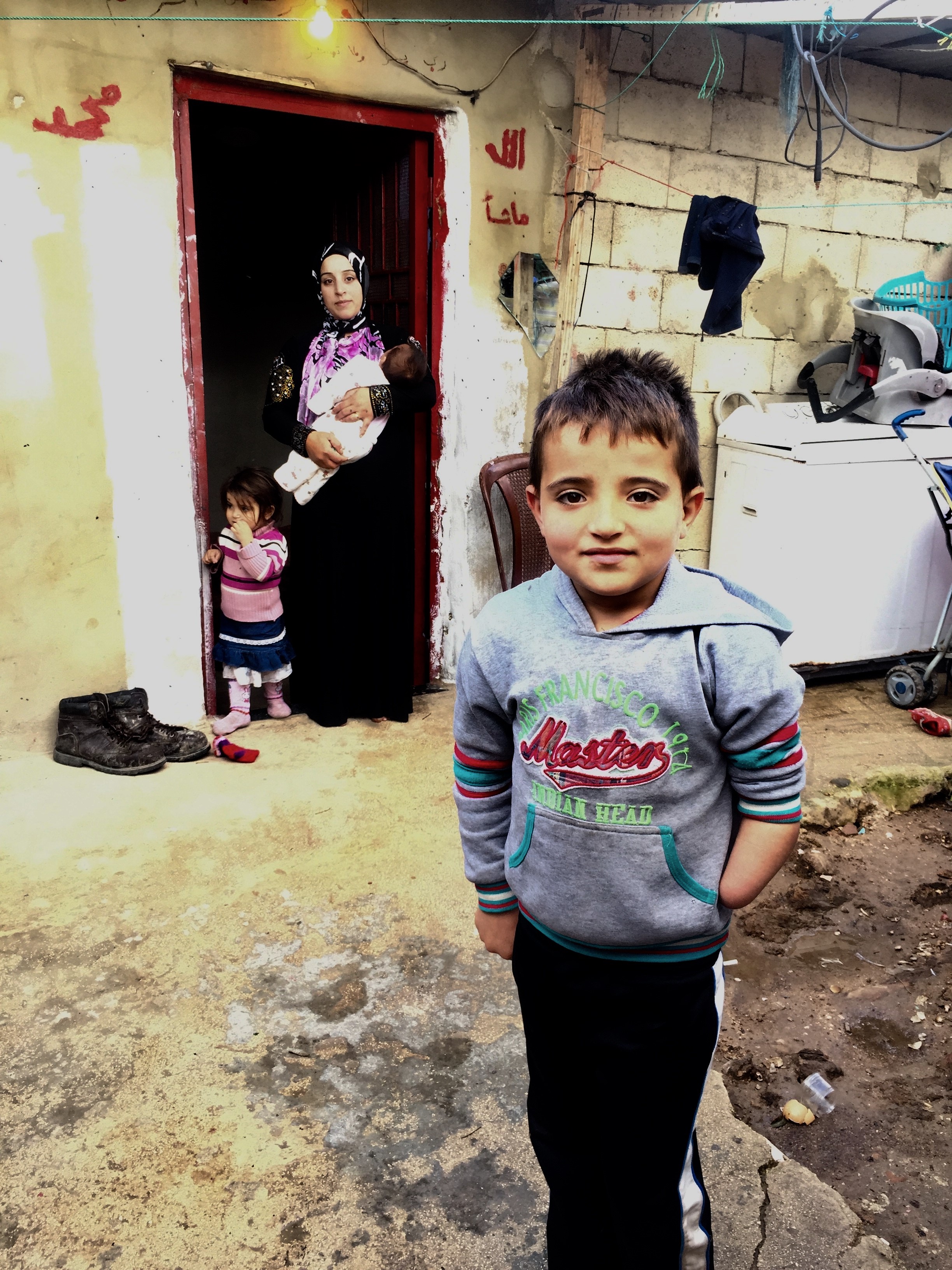
Syrian refugee Mustafa, 7, who was born with a physical disability, stands at the entrance of his home in Tripoli’s Hay Al Tanak neighborhood with his family in the background © UNHCR/Nadine Alfa
TRIPOLI, Lebanon, December 2017 – In the Hay al Tanak neighbourhood in Tripoli, Lebanese, Syrians and Palestinians live side by side. Among those who were forced to flee the violence in Syria and settle in this impoverished area are seven-year-old Mustafa and his family.
Born with a physical disability, Mustafa’s charm and friendliness win over any stranger he meets. Originally from Syria’s Idlib, he now lives in north Lebanon with his mother and his three sisters, one of whom is physically and mentally challenged.
Mustafa spends his time helping out his mother with cleaning or looking after his siblings. He often changes his mind about what he wants to do when he grows up but he is adamant about going to school and, eventually, college.
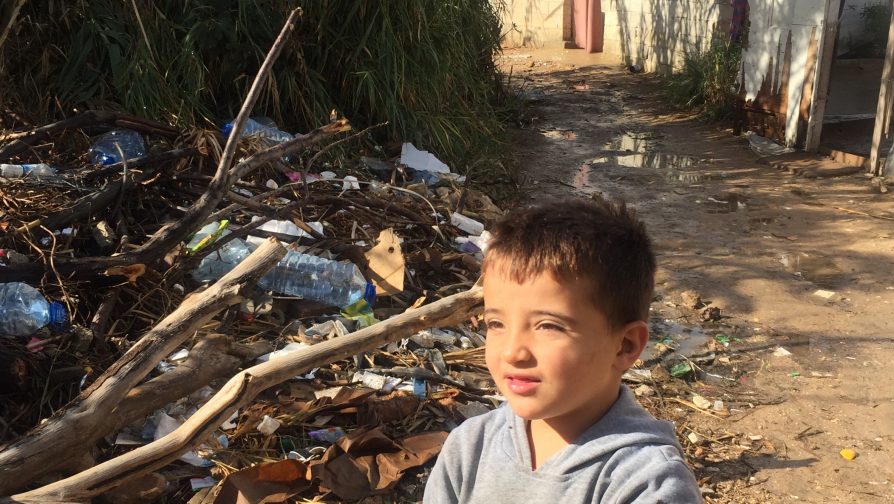
Syrian refugee Mustafa, 7, who was born with a physical disability, stands in the Hay Al Tanak neighborhood in Lebanon’s Tripoli where he resides with his family © UNHCR/Nadine Alfa
“I want to become a doctor or an architect,” he says.
But before looking this far ahead to the future, Mustafa’s mother Heba has to figure out how to cover the basic costs of raising her children. “I need to provide treatment for my son and my daughter but I don’t have the means to,” she says.
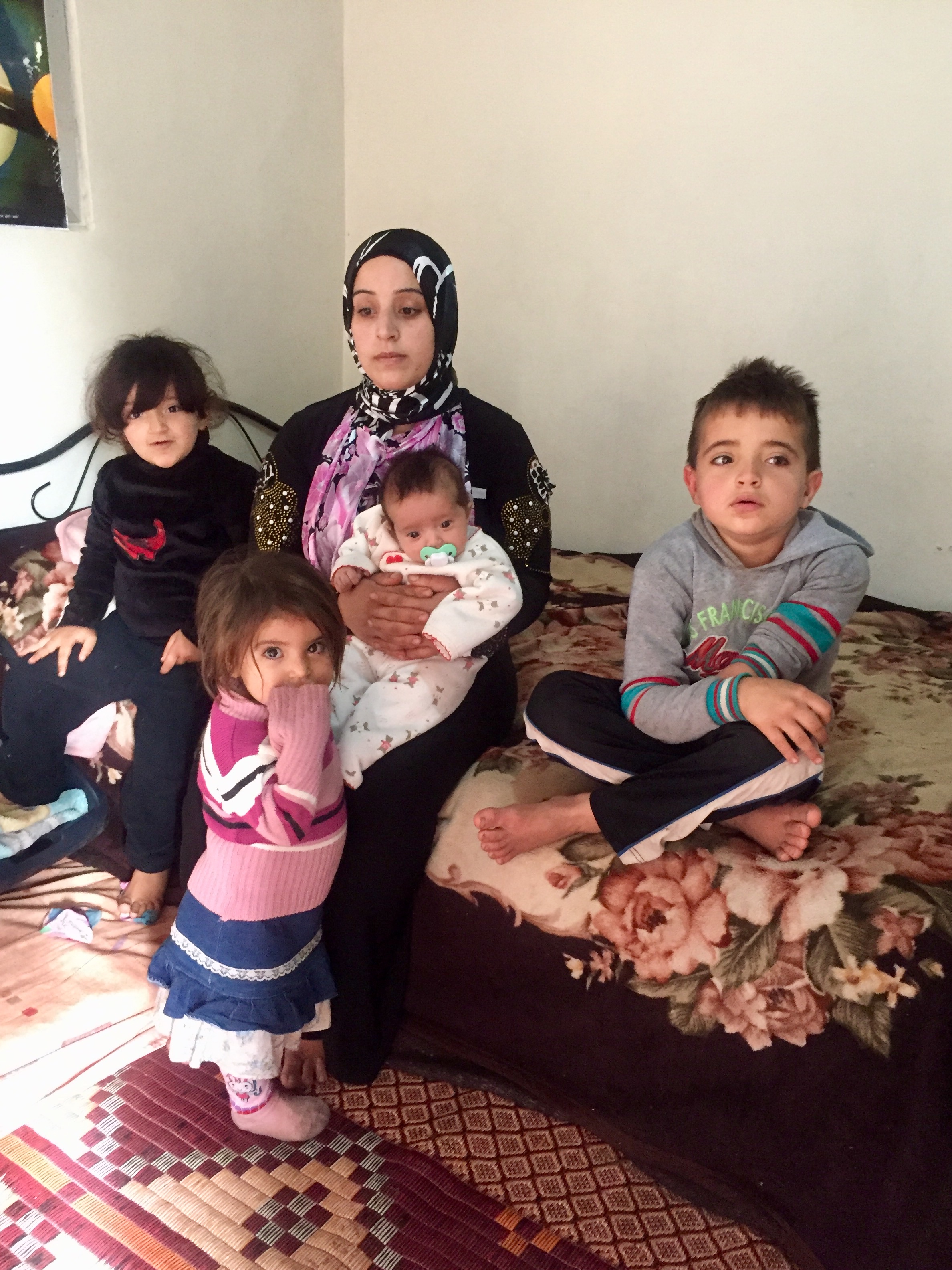
Heba, a refugee from Syria’s Idlib, sits on the family bed in Tripoli’s Hay Al Tanak neighborhood, north of Lebanon, with her children: (right to left) Mustafa, 7, Ranine, 2 months old, Sendos, 2, and Maroush, 6 © UNHCR/Nadine Alfa
The family was recently included in UNHCR’s cash assistance programme, which provides monthly cash grants to some of the most vulnerable refugee families across Lebanon. Heba says this assistance will go a long way, especially in the upcoming cold months.
“First, [I’ll use the money] to provide heating for the children and then to cover my children’s needs, such as clothing, seeing a doctor for my daughter. It will help a lot.”
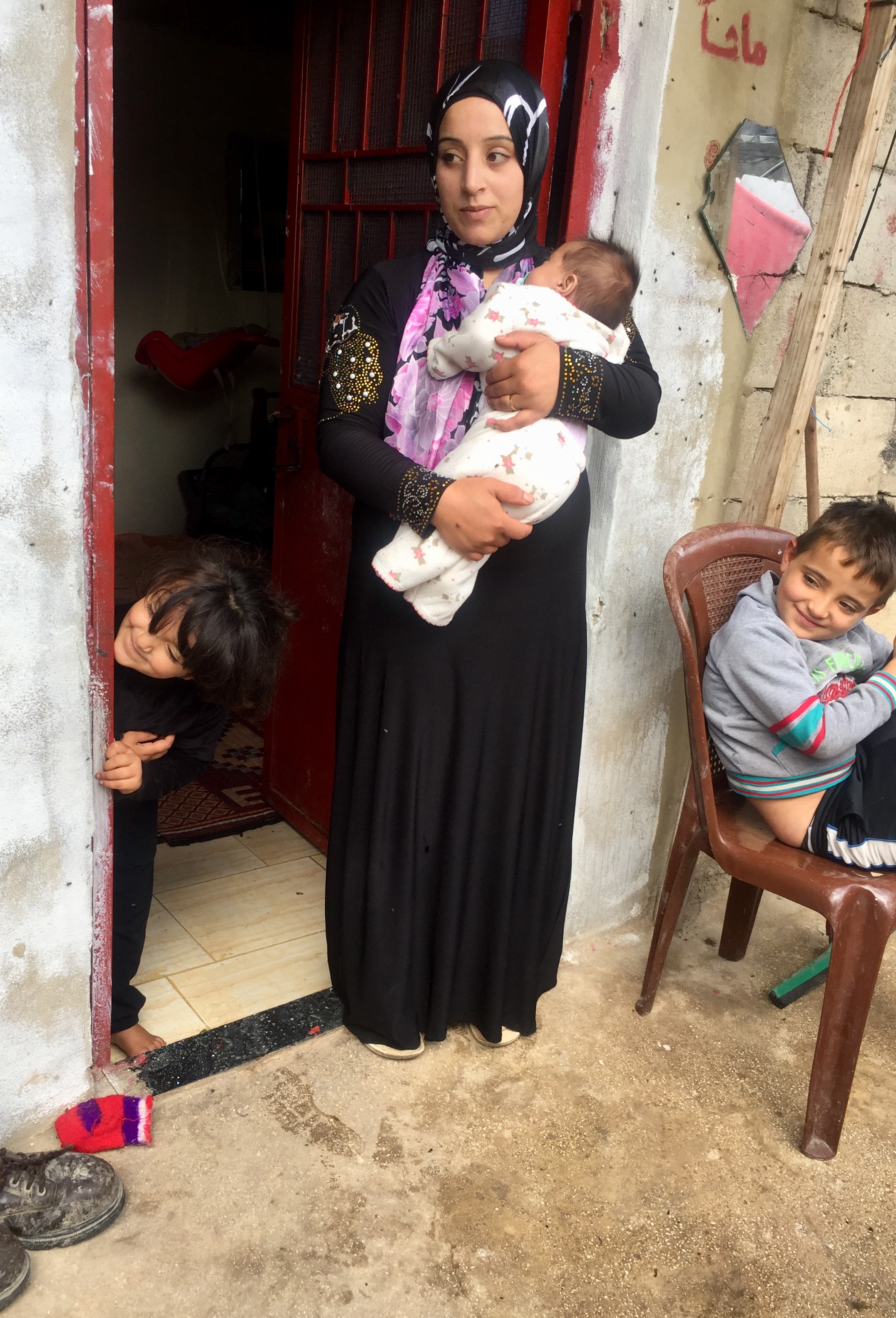
Heba stands at the doorway of her home in Tripoli’s Hay Al Tanak neighborhood, north of Lebanon, carrying her 2-month old baby, Ranine, while her son Mustafa, 7, (right) and daughter Maroush, 6, (left) joke around © UNHCR/Nadine Alfa
Thanks to contributions from a number of generous donors, thousands of severely vulnerable Syrian refugee families, like Heba’s, receive cash assistance to help them stay afloat. The cash is transferred onto a card from which refugees can withdraw money at any ATM across the country and spend it to meet their most pressing needs.
In the nearby Ez-Zeytoun informal settlement, 23-year-old Anwar lives with her three young children. She fled from Homs immediately after giving birth to her son under heavy shelling.

Anwar, 23, who fled Syria’s Homs and is currently living in an informal settlement in Tripoli, north Lebanon, says she cannot support her young children without the monthly cash assistance she receives from UNHCR © UNHCR/Nadine Alfa
She, too, receives cash assistance from UNHCR each month. She says her family cannot survive without this assistance, which helps cover part of the costs of food, rent, health care, and clothing.
“When I didn’t have the [cash assistance], I hated myself,” she says. “Imagine not having money to eat or drink.”
“Now I can buy food, take my children to the doctor, and buy them clothes,” she notes.
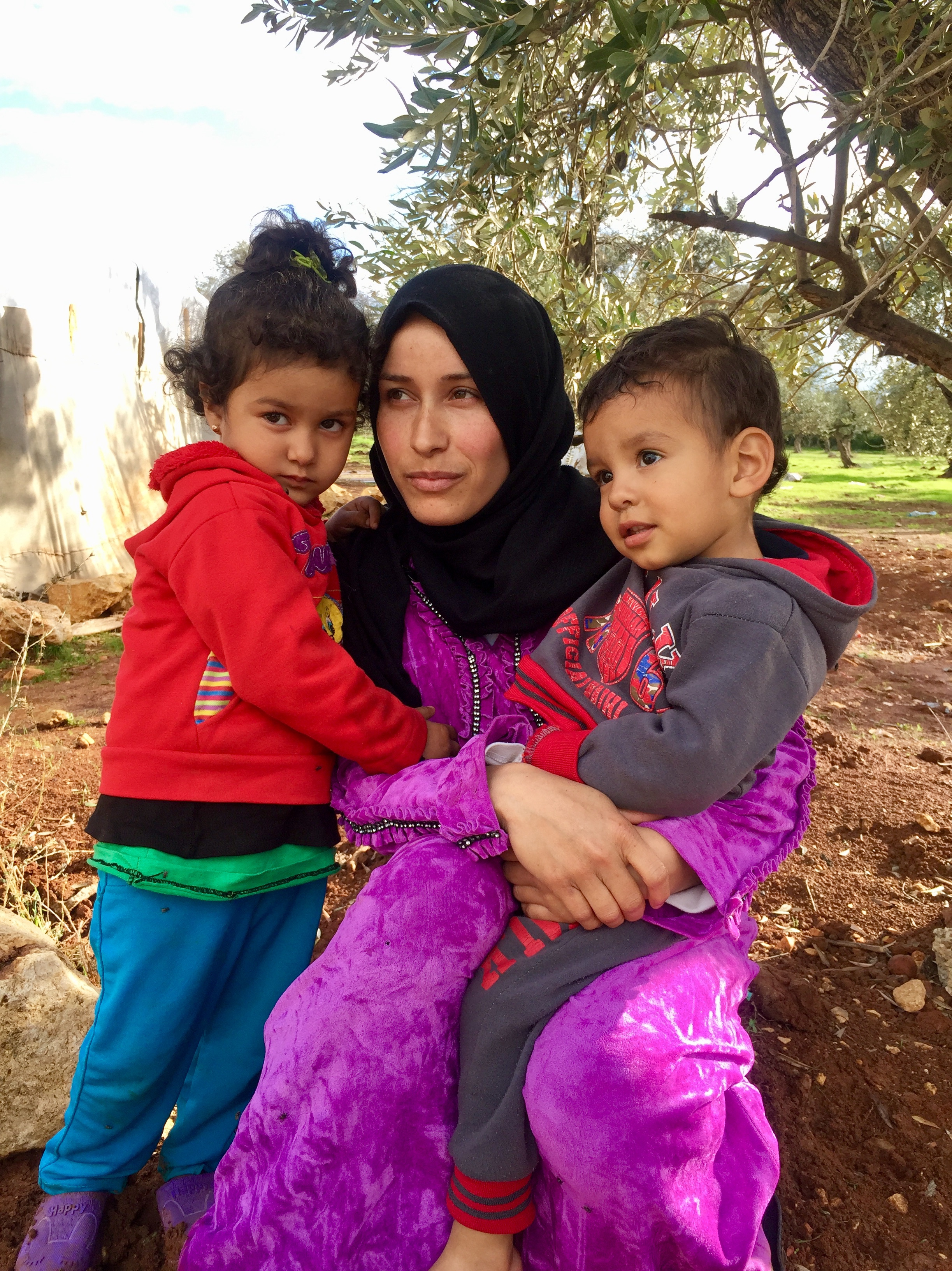
Anwar, 23, holds her son Ali, 2 (right) and her daughter Shahed, 3 (left). She says cash assistance allows her to take her children to the doctor and buy food and warm winter clothes © UNHCR/Nadine Alfa
Cash assistance supports refugees to cover their basic living expenses such as food and rent, and purchase what they need locally. It enables refugees to decide in a dignified manner how best to use it based on their own needs. By helping to reduce their socio-economic vulnerability, cash assistance also decreases the risk of exploitation.
In 2017, UNHCR provided monthly cash assistance to some 200,000 of the most vulnerable Syrian refugees. This would not have been possible without the vital support of donors like Australia, Belgium, Canada, the European Union, France, the International Islamic Relief Organization of Saudi Arabia (IIROSA), Italy, Germany, the Middle East Broadcasting Centre (MBC), the Netherlands, Norway, Spain (Agencia Andaluza de Cooperación Internacional para el Desarrollo), Switzerland, the United Kingdom and the United States of America.
شارك على الفيسبوك شارك على تويتر